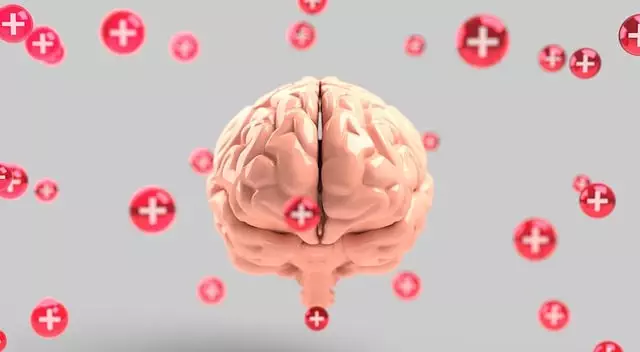Preventing Burnout: Strategies for Healthcare Workers at Kaiser Permanente Centennial
Burnout among healthcare providers in Centennial is a growing concern, but proactive measures like t…….
In the modern era, where mental health awareness is increasingly taking center stage, understanding accessible and effective support systems is paramount. This article delves into a specific yet vital aspect of global healthcare infrastructure: the Kaiser Permanente mental health phone number Centennial. We will explore its definition, impact, and evolution, providing insights into how this service contributes to mental well-being on both local and international levels. By examining various facets, from historical development to technological integration, we aim to offer a comprehensive view of this crucial resource.
The Kaiser Permanente mental health phone number Centennial refers to a dedicated telephone line or hotline designed to provide immediate access to mental health support and resources for individuals within the Centennial region served by Kaiser Permanente, a prominent healthcare provider. This service offers confidential counseling, crisis intervention, and referral services, ensuring timely assistance for those seeking help.
The concept of mental health hotlines originated in the late 20th century as a response to growing awareness about the prevalence of mental health disorders and the need for accessible support. Kaiser Permanente, known for its innovative healthcare approaches, introduced this service as part of its commitment to comprehensive patient care. Over time, similar initiatives have gained worldwide recognition, with many countries adopting hotline models to address the increasing demand for mental health services.
This phone number plays a pivotal role in several aspects:
The Kaiser Permanente model has inspired similar initiatives worldwide, leading to the establishment of numerous mental health hotlines across different countries. This global trend reflects a growing recognition of the value of direct, accessible support for mental well-being. According to a 2021 report by the World Health Organization (WHO), over 75 countries have implemented crisis hotline services, with many adopting innovative technologies to expand their reach.
The mental health hotline industry is a significant segment within the global healthcare market. According to a 2022 market research report, the global crisis hotline services market size was valued at USD 3.5 billion in 2021 and is projected to grow at a CAGR of 7.8% from 2022 to 2029. This growth is driven by increasing mental health awareness, rising demand for accessible care, and advancements in communication technologies.
Private equity firms and venture capitalists have shown interest in this sector, recognizing its potential impact on public health. Investments often target technology-driven solutions, such as mobile apps and artificial intelligence (AI)-based counseling platforms, to enhance hotline services. For instance, a 2020 investment of $15 million into a US-based mental health app highlights the growing interest in digital solutions.
These services contribute to economic systems by:
Technology has revolutionized the mental health hotline landscape, improving accessibility and service delivery:
Technological advancements have led to:
The development and operation of mental health hotlines are shaped by various policies and regulations:
Despite their benefits, mental health hotlines face several challenges:
Addressing these issues requires multifaceted approaches:
Mind Line, a 24/7 mental health hotline in London, England, has been operational since 1985. It offers confidential counseling and support for a wide range of mental health issues. A study published in the Journal of Mental Health (2020) revealed that 93% of callers reported improved mood within 48 hours of contact, highlighting the service’s effectiveness. Mind Line’s success lies in its extensive training programs for counselors and partnerships with local schools and community organizations.
The Texas-based Youth Crisis Hotline provides immediate support to youth aged 10-24 facing crises related to mental health, abuse, or other traumatic events. In a 2019 report, the hotline recorded over 65,000 calls, with 78% of callers reporting positive outcomes, including reduced anxiety and improved coping skills. The program’s success is attributed to its specialized training for counselors in working with youth and its collaboration with local youth organizations.
The Australian government launched a pilot project using AI chatbots alongside human counselors on a mental health hotline. Initial results (2021) indicated that nearly 40% of callers found the chatbot interactive and helpful, reducing wait times for human support. This case shows the potential for technology to enhance hotline services while managing increasing demand.
The future of mental health hotlines is poised for significant growth and innovation:
To capitalize on these trends, service providers should:
The Kaiser Permanente mental health phone number Centennial, and its global counterparts, represent a significant advancement in mental healthcare infrastructure. These services provide immediate, confidential support, contributing to improved public mental well-being. As technology evolves and societal awareness grows, hotlines will continue to adapt, ensuring that access to mental health resources remains a top priority worldwide.
Q: Are mental health hotlines suitable for everyone?
A: Hotlines are designed to offer immediate support for a wide range of individuals experiencing mental health crises or concerns. While they provide valuable assistance, complex or severe cases may require follow-up care from local healthcare providers.
Q: How can I ensure the confidentiality of my conversation with a hotline counselor?
A: All reputable hotlines prioritize confidentiality. Counselors are bound by professional ethics and legal requirements to maintain privacy. You can confirm their policies before sharing sensitive information.
Q: What if I don’t have access to a phone? Can I still get help?
A: Many hotlines offer alternative methods, such as online chat or video conferencing, ensuring accessibility for those without phones. Some regions also provide landline services or mobile phone support through community initiatives.
Q: Are there any charges associated with using these services?
A: Most mental health hotlines operate on a confidential basis and are free of charge. However, data or usage limits may apply if utilizing app-based services, especially those offered by private companies.
Q: Can I get professional help for myself or a loved one through these hotlines?
A: Absolutely. Hotline counselors are trained to provide initial assessments and referrals. They can guide individuals toward appropriate local resources, including therapy, support groups, or specialized treatment centers.

Burnout among healthcare providers in Centennial is a growing concern, but proactive measures like t…….

To create an engaging mental wellness podcast, start by aligning with organizations like Kaiser Perm…….